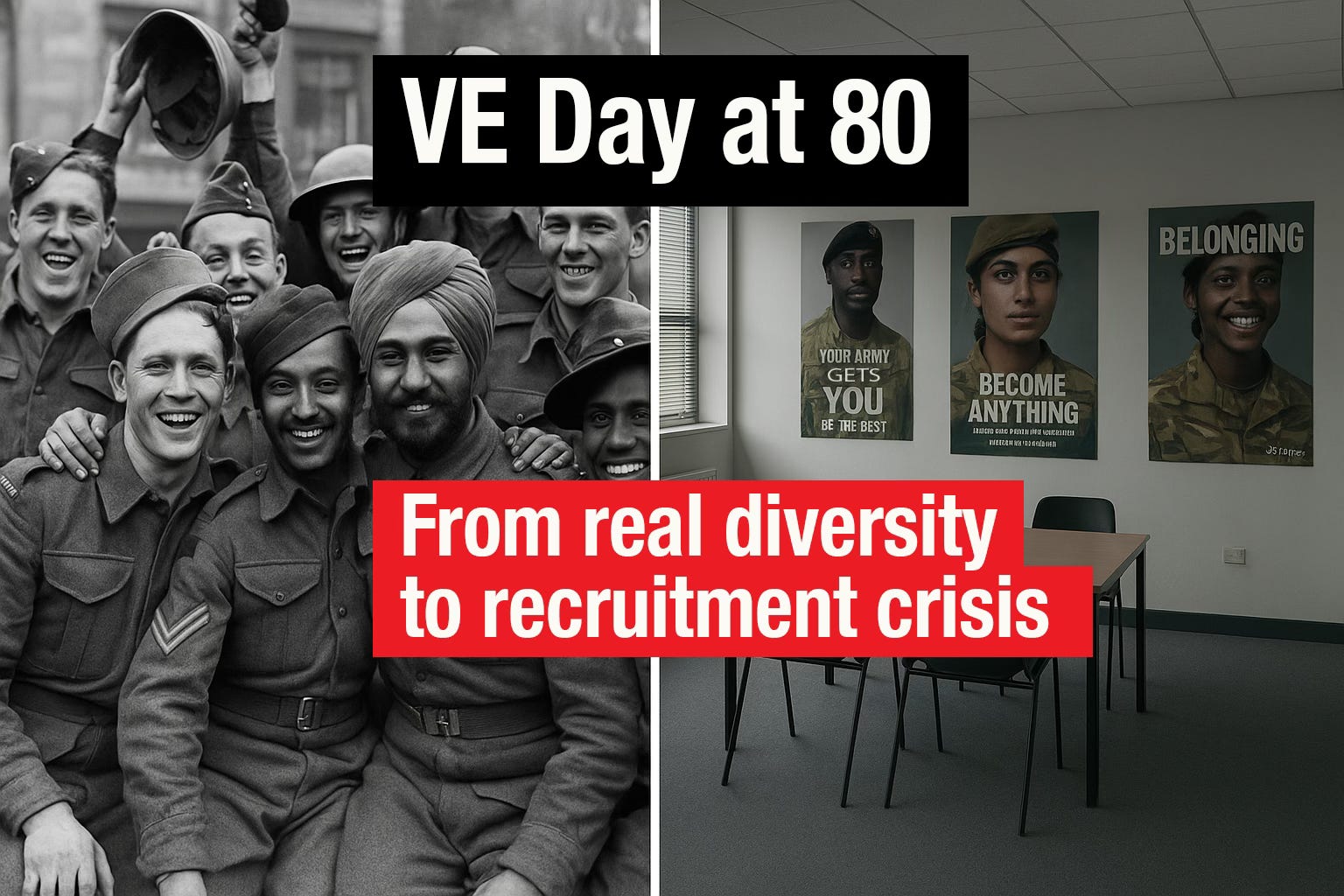UK Military Elite Celebrate Past Diversity While Alienating Traditional Recruits
Civil service policies and persecution of veterans threaten force readiness as VE Day approaches
As Britain prepares to mark the 80th anniversary of VE Day, a profound irony hangs over the commemorations. While military leaders gather to honour a generation of servicemen and women whose diversity included Indians, Nepalese, Africans and West Indians fighting alongside Britain's working-class majority, today's armed forces face a recruitment crisis partly of their own making.
The Spectator reports that nine of Britain's 16 infantry regiments are more than 20% below strength, with the historic Scots Guards — a regiment dating back to 1642 — operating at barely 58% of required numbers. This crisis comes amid controversial policies that have seen the RAF pause recruitment of white men and the Royal Navy launch recruitment campaigns notably excluding them.
At the heart of this crisis lies a more fundamental problem: the permanent civil service's grip on security policy has created an institutional narrative so far removed from historical reality that many of today's military leaders operate from a distorted understanding of their own institution's past. Admiral Tony Radakin's 2021 warning that the military risked "looking ridiculous" without greater diversity reflects this compromised perspective.
Among Britain's senior military leadership, only General Sir Peter Walls, former Chief of the General Staff, has publicly challenged the current direction. His outspoken support for veterans and criticism of contemporary policies stands in stark contrast to the conspicuous silence from other senior officers — a silence that speaks less to willing complicity than to an establishment that has lost touch with its own institutional memory.
This reticence becomes more troubling when considering the dual challenges facing Britain's military: declining recruitment and the relentless prosecution of veterans. From Northern Ireland to more recent conflicts, servicemen face investigations decades after their service. As Sir Peter argues through the Justice for Veterans campaign, "Those who protect us deserve protection themselves" — a principle increasingly obscured by civil service policies that seem designed to rewrite rather than understand history.
A former SAS Regimental Sergeant Major recently highlighted how this legal scrutiny undermines military morale, writing that "soldiers who once charged bravely into conflict may begin to question the legitimacy of their purpose." This crisis of confidence stems not just from current policies but from decades of institutional drift, where permanent civil servants, rather than elected officials or military leaders, have shaped the narrative around security matters.
The timing couldn't be more concerning. As Russia's war in Ukraine grinds on and global tensions rise, Britain's armed forces face these self-inflicted wounds. Former Colonel Tim Collins warns that the "evangelically zealous pursuit of diversity" endangers national security, particularly when combined with declining recruitment numbers.
This week's VE Day celebrations will showcase military leaders paying tribute to a genuinely diverse fighting force that secured victory in 1945. Yet these commemorations risk becoming mere pageantry when divorced from genuine understanding of the historical context they claim to honour. The challenge isn't just about current policies; it's about recovering an institutional memory that has been systematically eroded by decades of civil service management.


